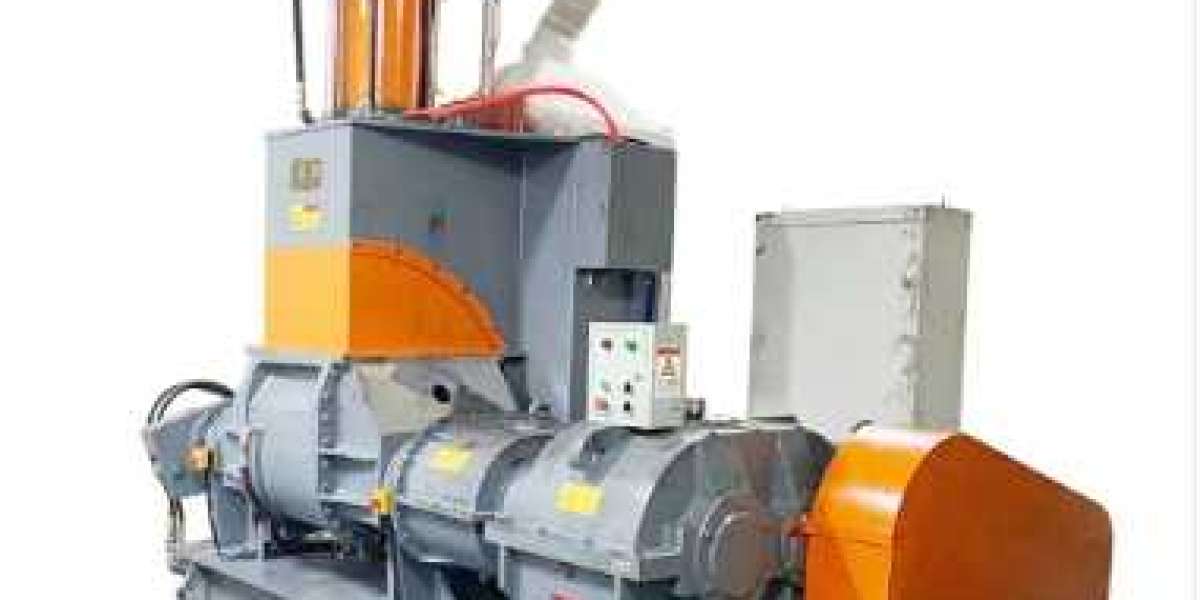Introduction to Kneaders
Welcome to our blog post on the fascinating world of kneaders and their pivotal role in high-quality plastic production! If you're curious about how these innovative machines contribute to the creation of top-notch plastics, you've come to the right place. Kneaders are more than just ordinary mixers; they possess a unique ability to blend, heat, and shape raw materials into perfect harmony. In this article, we'll delve into the importance of kneaders in achieving exceptional plastic quality and explore the various types used in today's industry. So let's jump right in and uncover the secrets behind these extraordinary machines!
The Importance of Kneaders in High-Quality Plastic Production
Plastic is a versatile material that plays a vital role in our everyday lives. From packaging to automotive parts, plastic is used in various industries. However, ensuring the production of high-quality plastic requires advanced technology and precision. This is where kneaders come into play.
Kneaders are essential machines used in the plastic production process. They are designed to mix and blend raw materials with additives to create a homogenous mixture. By doing so, they ensure uniform distribution of additives throughout the plastic matrix, resulting in improved product quality.
One of the key reasons why kneaders are important in high-quality plastic production is their ability to control the mixing process. Unlike traditional mixing methods that rely on simple agitation, kneaders use mechanical action to achieve thorough blending of materials. This helps eliminate inconsistencies and ensures uniformity in the final product.
Furthermore, kneaders offer precise temperature control during the mixing process. The ability to maintain optimal temperatures allows for better control over polymer viscosity and reaction rates, leading to enhanced product performance characteristics such as strength and durability.
The use of kneaders also contributes to increased productivity and efficiency in plastic production. Their unique design enables faster processing times compared to conventional mixing methods. Additionally, they require minimal maintenance due to their robust construction, reducing downtime and costs associated with repairs or replacements.
In addition to these advantages, advancements in kneader technology continue to drive innovation within the industry. Manufacturers are constantly working towards improving designs for better energy efficiency and reducing waste generation during production processes.
In conclusion, it's clear that kneaders play a crucial role in achieving high-quality plastic production by ensuring consistent blending of raw materials with additives while maintaining optimum temperatures throughout the process.
Types of Kneaders Used in the Industry
When it comes to high-quality plastic production, kneaders play a vital role. These innovative machines are designed to efficiently mix and blend materials, ensuring uniformity and consistency in the final product. There are several types of kneaders used in the industry today, each with its own unique features and advantages.
One commonly used type is the sigma blade kneader. This machine consists of two blades that rotate at different speeds, effectively folding and stretching the material. It is particularly effective for processing viscous materials or those with high elasticity.
Another popular option is the twin-screw extruder kneader. As the name suggests, this type utilizes two intermeshing screws to mix and melt materials together. It offers excellent control over temperature and mixing intensity, making it ideal for compounding plastics with additives or fillers.
In addition to these, there are also planetary mixers that use multiple agitators rotating on their own axes while orbiting around a central axis. This allows for thorough blending of materials without excessive heat generation.
Each type of kneader has its own strengths and applications within the plastic production process. Manufacturers choose them based on factors such as desired output quality, material characteristics, and production volume.
By utilizing these various types of kneaders strategically throughout their operations, plastic manufacturers can achieve consistent results while optimizing productivity levels. With ongoing advancements in technology, we can expect even more innovative developments in kneader design that will further enhance efficiency and performance in plastic production processes.
Advantages of Using Kneaders for Plastic Production
Kneaders play a crucial role in achieving high-quality plastic production. These machines offer several advantages that make them indispensable in the industry.
First and foremost, kneaders provide excellent mixing capabilities. They have a unique design that allows for efficient blending of various materials, ensuring uniform dispersion throughout the plastic mixture. This results in consistent product quality and eliminates issues like uneven color distribution or weak mechanical properties.
Another advantage is their ability to handle different types of polymers. Kneaders can process both thermoplastics and thermosetting plastics, making them versatile machines suitable for a wide range of applications. Whether you're working with polyethylene, PVC, or even more complex materials like silicone rubber, kneaders can handle it all.
Furthermore, kneaders are known for their energy efficiency. Compared to other mixing methods like extruders or Banbury mixers, kneader technology requires less power consumption while delivering superior performance. This not only reduces operating costs but also contributes to environmental sustainability by minimizing energy waste.
In addition to these benefits, kneaders offer precise temperature control during processing. The machine's design allows for effective heat transfer and regulation within the mixing chamber, preventing overheating or underheating of the material. This ensures optimal viscosity and enhances overall production efficiency.
Moreover, using kneaders minimizes production time as they enable faster mixing cycles compared to traditional methods. Their advanced features allow for quicker dispersion and homogenization of ingredients without compromising on quality standards.
Maintenance requirements are relatively low when it comes to kneaders. With proper care and regular cleaning procedures in place, these machines can operate efficiently over extended periods with minimal downtime due to breakdowns or repairs.
Utilizing kneader technology offers numerous advantages – from improved mixing capabilities to energy efficiency and reduced maintenance needs – making them an essential component in achieving high-quality plastic production.
Future Developments and Innovations in Kneader Technology
Kneaders have been an integral part of the plastic production industry for many years, but that doesn't mean there isn't room for improvement. As technology advances, so does the potential for innovation in kneader technology.
One area of development is the enhancement of control systems. Manufacturers are constantly working to improve the precision and accuracy of kneading machines. By implementing advanced sensors and algorithms, operators can have more control over variables such as temperature, pressure, and speed. This allows them to fine-tune the mixing process and achieve even higher levels of quality in plastic production.
Another exciting advancement is the integration of artificial intelligence (AI) into kneader technology. AI has already revolutionized various industries, and it's now making its way into plastic production. By analyzing vast amounts of data from past productions, AI algorithms can optimize parameters such as mixing time or ingredient ratios to maximize efficiency and product quality.
Furthermore, researchers are exploring new materials that can be used in kneaders to enhance their performance. For example, nanomaterials with unique properties could potentially improve heat transfer or reduce wear on machine components. These advancements would not only increase productivity but also extend the lifespan of kneading machines.
Additionally, efforts are being made to make kneaders more environmentally friendly by reducing energy consumption and waste generation during operation. Energy-efficient designs are being developed along with recycling mechanisms that minimize material loss.
In conclusion,The future looks promising for kneader technology in high-quality plastic production! With ongoing developments focused on control systems, AI integration, innovative materials, and environmental sustainability initiatives - we can expect even greater efficiency and superior plastic products in the years ahead! The role of kneaders will continue to evolve as manufacturers strive towards excellence through continuous innovation.
Conclusion
Kneaders play a crucial role in ensuring high-quality plastic production. These innovative machines are designed to efficiently mix and process materials, resulting in superior end products. The use of kneaders offers numerous advantages over traditional mixing methods, including improved product consistency, reduced processing time, and increased productivity.
Various types of kneaders are used in the plastics industry, each with its own unique features and capabilities. From single-screw kneaders to twin-screw extruders, manufacturers have a range of options to choose from based on their specific requirements. This versatility allows for greater flexibility in meeting the diverse needs of different plastic applications.
The benefits of using kneaders for plastic production cannot be overstated. The precise control offered by these machines ensures uniform blending and dispersion of additives, resulting in consistent product quality. Kneading also helps eliminate air bubbles and impurities that can compromise the integrity of the final plastic material.
Furthermore, kneaders contribute to cost savings by reducing energy consumption and minimizing waste generation during the production process. Their efficient mixing action enables faster material homogenization while maintaining excellent melt properties. This not only improves productivity but also reduces downtime associated with maintenance or cleaning tasks.
Looking ahead, there is great potential for further advancements and innovations in kneader technology. Manufacturers are continuously working towards developing more efficient systems that offer enhanced performance and sustainability features such as lower energy consumption or compatibility with recycled materials.



